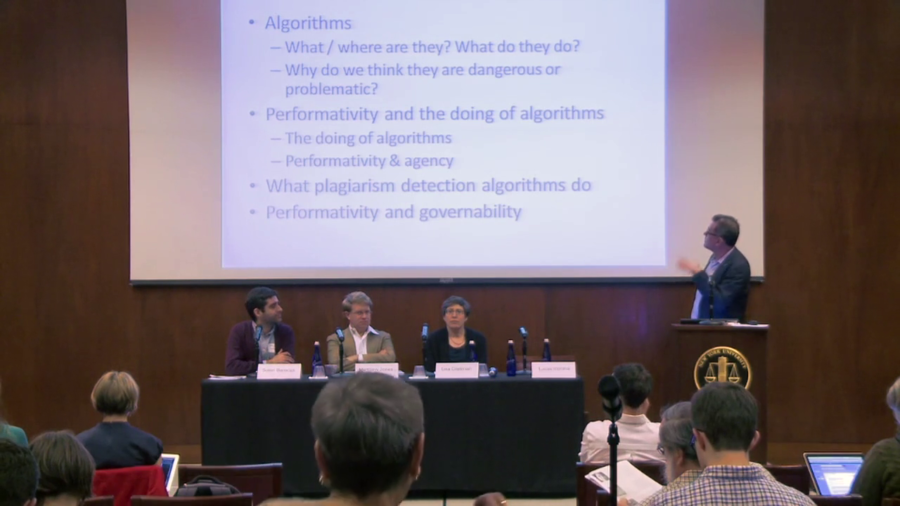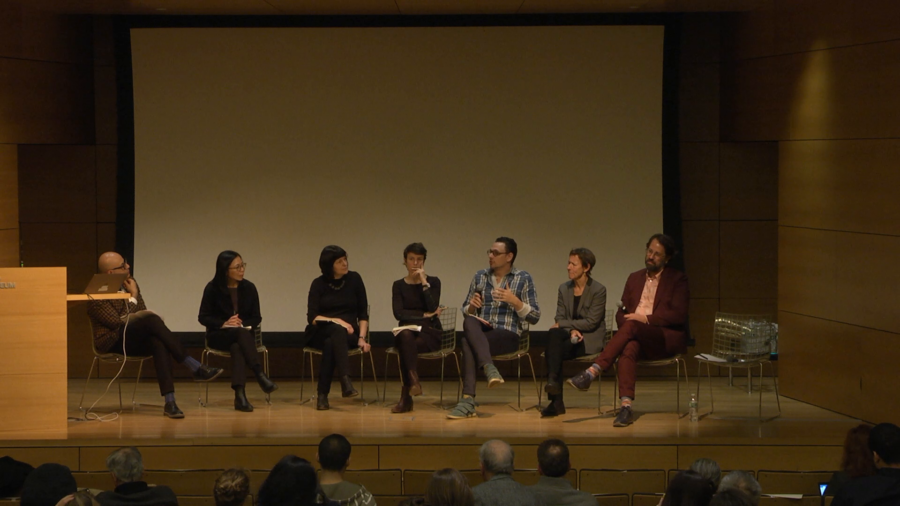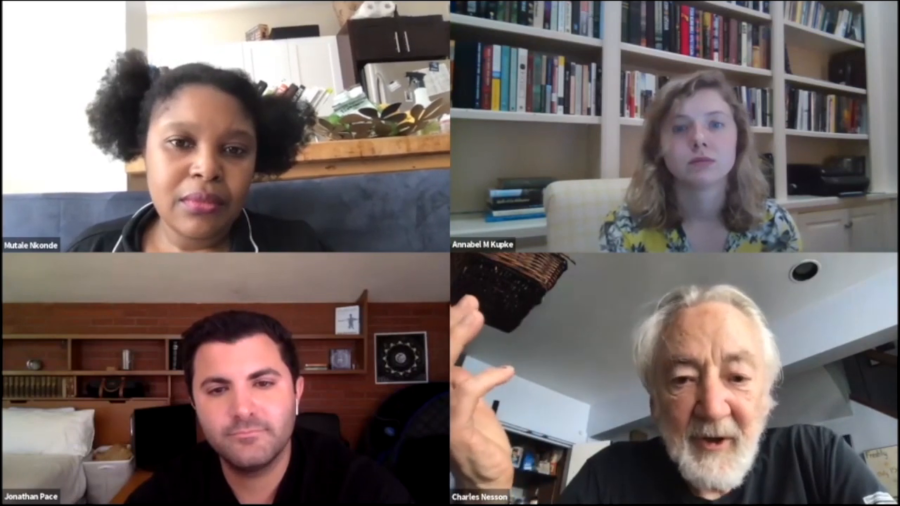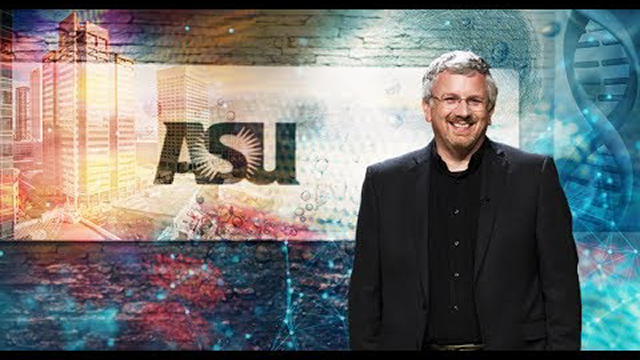I think this question “what do algorithms do,” which points to the question of agency, I think is an inappropriate way to ask the question. I think we should rather ask the question, what do algorithms become in situated practices?
Archive (Page 1 of 2)
It has developmentally taken me a long time to realize I really need people. So you know, it goes from that kind of like “I’m going to be the heroic artist in my atelier,” to you know, “Let’s get together and make s’mores and drink whisky and make design.”
I used to kind of deify these people, presuming that they were presenting some gospel that I just had to work and work and work to try to understand so that I could like, put on their glasses and see the world through their lenses. But ultimately I realized that these are fallible people, often egomaniacs, often really bad writers. And that’s why I can’t understand it. So it’s not to give up on them too quickly. If you put in the work to try to understand what they’re saying. But not to regard their work as gospel.
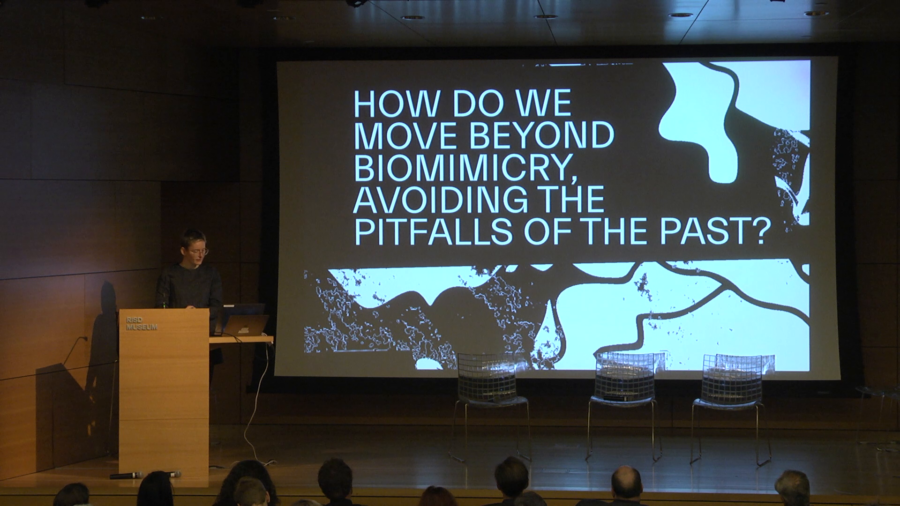
Today, we will examine the historical and philosophical roots of biocentrism, biomimicry, explore the quality of the relationship it presupposes with nature, and question its ecofriendliness. We will introduce emerging alternatives to biomimicry and discuss the challenges it promises.
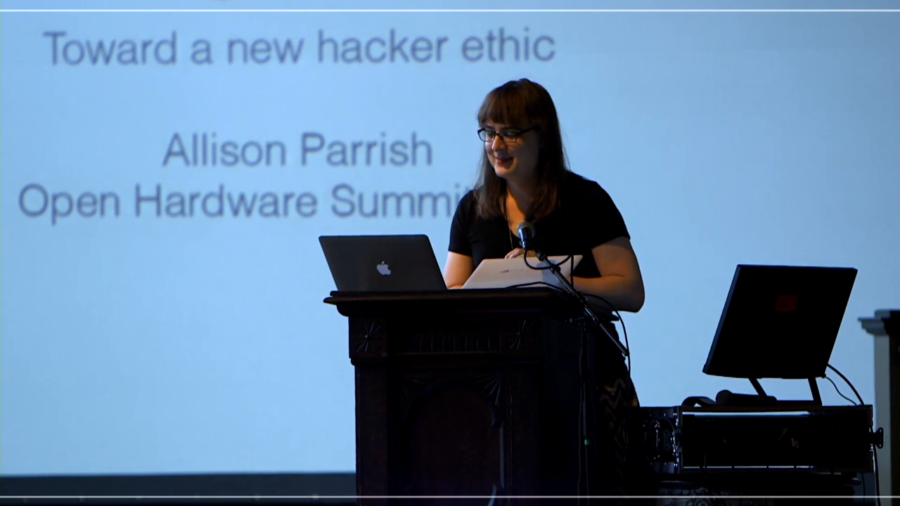
I wouldn’t be surprised to find out that many of us here today like to see our work as a continuation of say the Tech Model Railroad Club or the Homebrew Computer Club, and certainly the terminology and the values of this conference, like open source for example, have their roots in that era. As a consequence it’s easy to interpret any criticism of the hacker ethic—which is what I’m about to do—as a kind of assault.
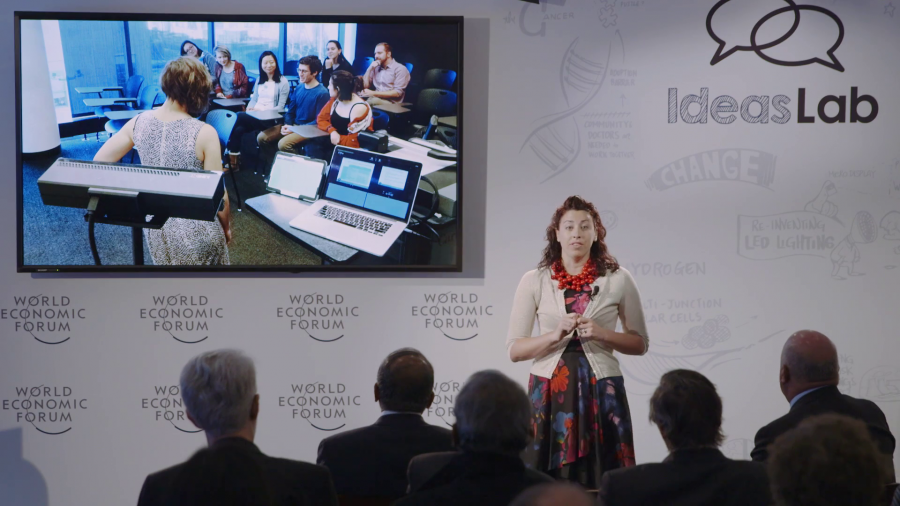
Education has remained largely unchanged for millennia. In any classroom, you see a set of students gathered around a teacher who’s writing on the board, or maybe now we’ve added a PowerPoint deck. But, as in many other fields that have been slow to change, the data revolution is coming for education.
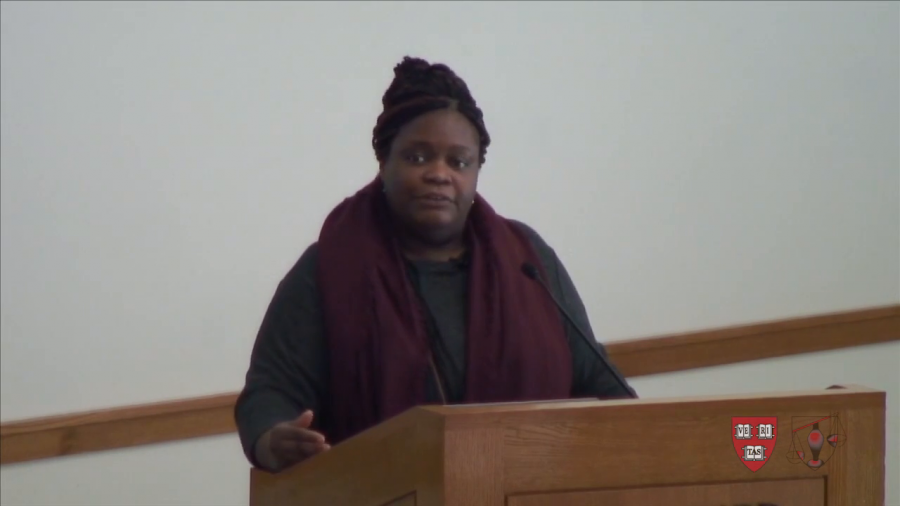
I think the part that engages students that are from underrepresented ethnic groups is missing. I think they don’t see themselves reflected, don’t see their interests or their cultures reflected, so they stay outside of it even if it’s free, or even if it’s something that is in their neighborhood.

